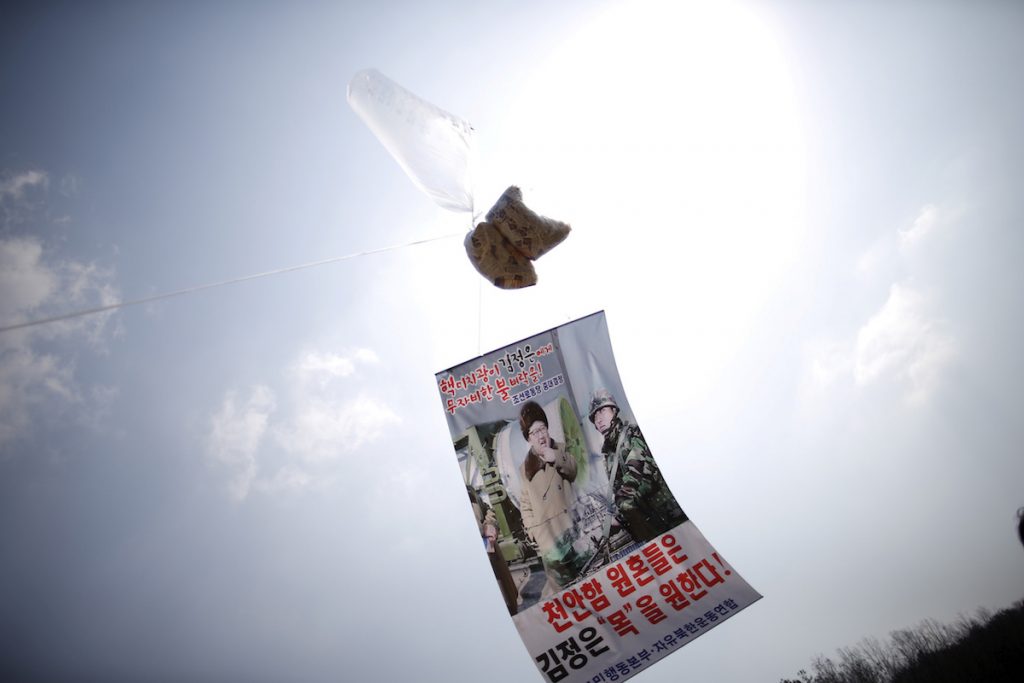
South Korea’s recent ban on the launch of anti-Pyongyang leaflets into the North was a “great mistake” that only hampers change in the isolated country, said Tae Yong-ho, the first North Korean defector to be elected as a South Korean lawmaker.
Defectors and activists in South Korea have for decades used balloons to send leaflets across the tightly guarded border, along with food, medicine, money, mini radios and USB sticks containing South Korean news and dramas. But last month the South’s parliament passed a bill banning such activities.
Speaking in an interview at the Reuters Next conference Tae, who was North Korea’s deputy ambassador to Britain before defecting in 2016, said the ban severed one of the very few sources of outside information for ordinary North Koreans.
“It’s a great mistake,” Tae said. “We can only bring a change in a communist state with soft power, not military interventions or economic blockade.”
The limited yet expanding access to information, including via border trade with China, has hastened subtle change in a country that only allows state media focused on building the prestige of leader Kim Jong Un.
In a 2019 survey by a Seoul-based activist group, more than 71 percent of 200 defectors said they had watched a South Korean drama or film before fleeing their homeland, mostly using a DVD or USB device at night when surveillance is weak.
“In daytime, the population is shouting ‘long live Kim Jong Un’, but at night they all watch South Korean dramas and movies,” Tae said.
“North Korea is changing, and we have to push in that direction. Why stop the inflows of information?”
Knowledge about the outside world gained from embassy postings in Europe had fostered disillusionment among his family, and eventually served as a key driver for his defection, former diplomat Tae said.
“My children learned that their lives were nothing but those of contemporary slaves if they go back to North Korea,” he said. “My sons knew everything, and I knew everything. It was my decision … and I wanted to give them the choice of freedom.”
Source: Licas Philippines
0 Comments